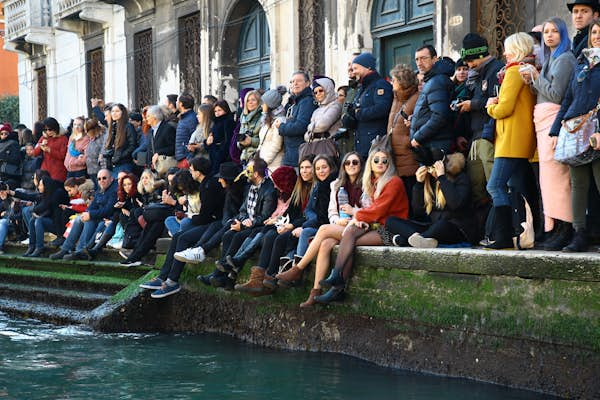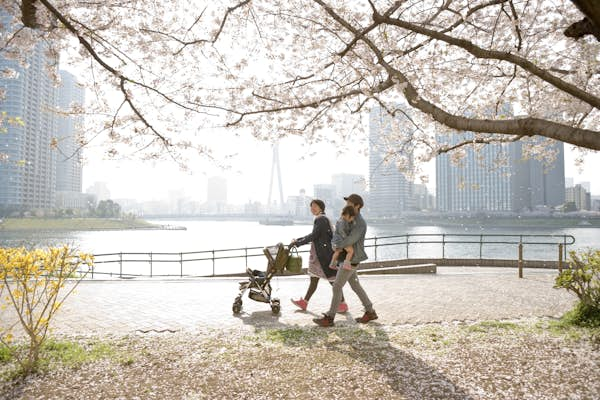Venice unveils booking and payment process for entry: Here's how to plan your visit
In an effort to regulate the number of tourists within the city, Venice is introducing a new booking system for visitors.

Venice has long discussed implementing an entry fee for visitors but the specifics haven't always been clear. However, city officials recently unveiled a comprehensive plan, shedding light on when and how the much-debated tourist tax will be introduced.
When it comes to overtourism, Venice is often one of the first cities that comes to mind, along with Barcelona and Amsterdam. The city's struggles with overtourism have been well-documented, as visitors continue to pour in at a rate that surpasses the capacity of its delicate centuries-old infrastructure. The crisis peaked in 2019, with the city welcoming a staggering 30 million visitors, many of whom stayed for just one day. In August, UNESCO said it would consider adding Venice to its list of world heritage sites at risk, highlighting the pressing need for comprehensive preservation efforts from officials.
UNESCO warned of “irreversible changes” to the city and lagoon, and “continuing deterioration due to human intervention, the impacts of climate change and mass tourism.”
It said that Italy has not done enough to preserve the area, citing a “lack of significant progress in addressing the complex issues.”
Partly in response to this, Venice is now introducing an entry fee (among other measures) specifically targeted at day trippers. Mayor Luigi Brugnaro describes this fee as a "first-of-its-kind experiment" aimed at managing visitor influx more effectively and preserving the city's unique heritage.
"Our goal is to create a more livable city," he stated in a recent interview with local media.
UNESCO threatened to blacklist Venice if it didn't take issues related to climate change and mass tourism seriously © Getty ImagesWhen will Venice's entry fee be introduced?
Starting next year, visitors will be required to pay a fee of €5 during the first peak tourism period of the year, from April 25 to May 5. The fee will also apply during weekends in May and June, as well as the first two weekends of July, Venice city council confirmed via The Local.
The day-tripper fee will only apply during peak hours from 8:30am to 4pm, so if you're arriving later for dinner or a concert, you won't have to pay.
Who has to pay to enter Venice?
Day-trippers i.e. those not staying in accommodation in Venice overnight have to pay.
Residents and their relatives of Venice and the wider Veneto region, children under 14, and people staying at least one night in local hotels will not have to pay an entry fee. People with disabilities, students enrolled in the city and those visiting the city for the day for health reasons or a sporting event or concert are also exempt.
How do I pay?
To manage the entry process, day trippers will need to pre-book their visit through an online booking platform that should be launched on January 16. Upon booking, visitors will receive a QR code that can be scanned at electric turnstiles located at Venice's main access points, including the main train station. Officials will be allowed to randomly check people and ask for their code.
It's important to note that even people who are exempt from paying the day-tripper fee will have to register to enter Venice. That includes people staying in accommodation in the city. They will have to register on the soon-to-be-launched platform and download a QR code.
Authorities say it will allow them to have a better understanding of how many people will be coming and going and prepare accordingly. The idea is that they will be able to apply more resources in areas like waste management and traffic control on the busy days.
One of Venice's most iconic landmarks opens to visitors for the first time in 500 years
Tourists are returning to Venice © Claudio Stocco/ShutterstockVenice's other measures to manage overtourism
The entrance fee is another cog in an ambitious and heavily monitored system that tracks the comings and goings of people in Venice. In 2022, the council installed a network of cameras, sensors, and mobile phone data in the city to keep track of visitor numbers and information.
The purpose of this tracking system is to identify areas where crowds are gathering and temporarily restrict access until the congestion eases, diverting people elsewhere so as not to block pedestrian traffic. Officials say the tracking system gives them a clearer picture of the number of people passing through and allows them to predict when specific areas will get busy. They insist it's done "in absolute respect for privacy."
Furthermore, as a response to warnings from UNESCO about the damage caused by cruise ships, Venice officially banned such ships from the historic city center last April. Instead, large ships are now redirected to alternative ports like Fusina and Lombardia, alleviating the pressure on Venice's infrastructure.


















